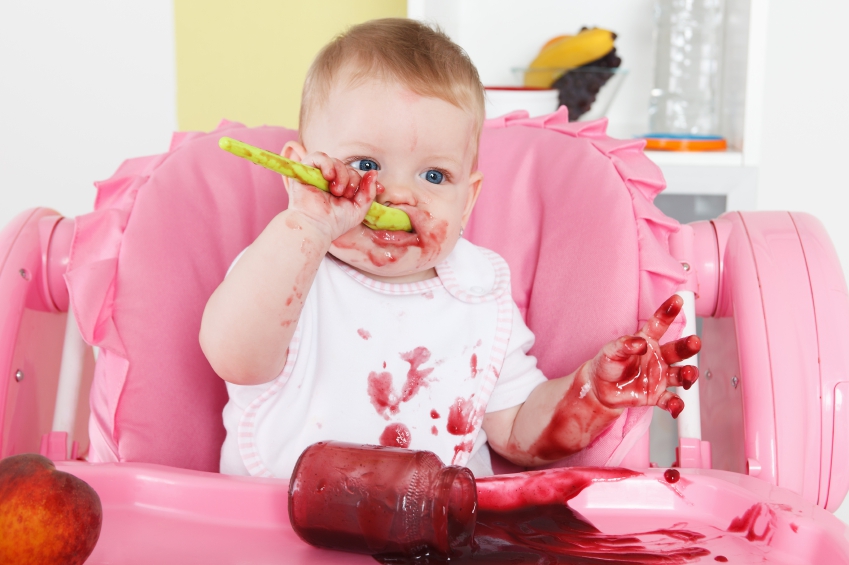Top Tips for Starting Your Baby on Solid Food
A young baby is unable to eat anything other than breast milk or baby formula in the first few months of life. This is because their digestive system is not ready to handle anything other than these liquids.
Most people start to move their babies on to solids anytime between 4-6 months. Although, as with any aspect of parenting, it will very much depend on your own baby. Some parents prefer to wait until the recommended 6 month guideline, whilst others will decide that their baby is ready for solid food a lot sooner.

How Can You Tell if Your Baby is Ready?
As we said above, as a parent, you’ll definitely know when your baby is ready to start on solids. Each baby is different. However, most babies will give clear signs of being ready to move onto solids. These include:
. Your baby is able to keep their head in a controlled upright position.
. Your baby is no longer pushing food out of his mouth with his tongue.
. Your baby should be able to move food to the back of his mouth and swallow without any issues.
. Your baby has doubled in birth weight.
. Your baby has become very curious about what you’re eating. His appetite has also increased.
What Should You Feed Your Baby?
Starting your little one on solid food can sometimes be overwhelming. For first time parents, it can be stressful trying to figure out what they should and shouldn’t be feeding their baby. For the first couple of months of eating solids, it’s recommended that you start with pureed fruit, vegetables and meat. Eggs and fish are also very good options!
A lot of parents claim to have more success when giving their baby fruit before vegetables; but there isn’t any research to confirm that one is better than the other. Meat is a great source of iron and zinc yet a lot of parents seem to shy away from introducing it too early. We suggest starting with pureed chicken!

It’s suggested by experts that parents should introduce different foods to their baby slowly. By waiting a few days before offering them something else, you’ll be able to look out for any signs of allergic reactions or intolerances. Look out for diarrhoea, sickness or unusual rashes.
It’s worth being persistent too. Don’t give up if your baby refuses to eat a certain food straight away. Some research claims that babies need to try something 10 times before deciding whether they like or dislike. We suggest waiting a few days before trying again!
Does Your Baby Still Need Milk?
Your baby should still receive breast milk or baby formula up until they are one years old. This is so they receive the right amount of vitamins, irons and protein in a way that is easy to digest. However, the amount they need will be significantly less – this is something that you will know from observing your baby.

Contact us today on 01524 66888 and we will be more than happy to help you out!




